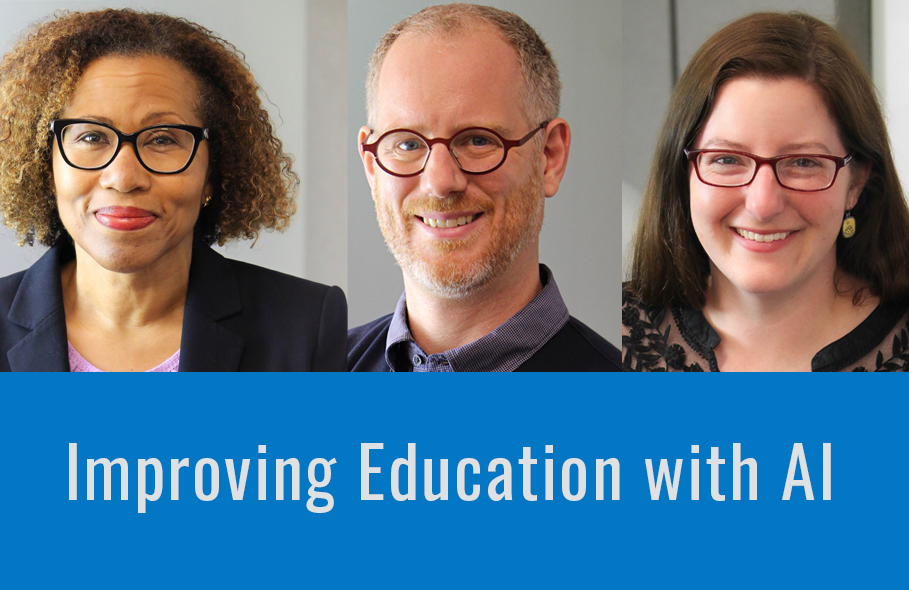Using AI to Improve Education and Impact Society
by Tom Hanlon / Sep 29, 2020

The College of Education is collaborating within multiple new artificial intelligence institutes to explore how AI can impact education and society.
The College of Education at Illinois is involved in two of the seven new national artificial intelligence institutes being funded by the National Science Foundation and the US Department of Agriculture’s National Institute of Food and Agriculture.
These two AI institutes are led from the University of Illinois at Urbana-Champaign campus: the Artificial Intelligence for Future Agricultural Resilience, Management, and Sustainability (AIFARMS) Institute and the Molecular Maker Lab Institute. Each institute, funded for five years, involves researchers from multiple universities.
“It reflects the strength of the University of Illinois,” says Gabrielle Allen, associate dean for research and research education in the College of Education. “The fact that we are leading two institutes shows the faith the NSF has in this university to be able to carry out not just the research and the science, but in our ability to bring the institutional support to execute these large and complex projects.”
Michael Tissenbaum, an assistant professor in Curriculum & Instruction, is part of the AI Institute for Student-AI Teaming, centered at the University of Colorado Boulder, which will explore the role that artificial intelligence can play in the future of education. Denice Hood, teaching associate professor in Education Policy, Organization and Leadership, and Raya Hegeman-Davis, school-university research coordinator for the Bureau of Educational Research, are both involved in AIFARMS.
“As program evaluator, I am affiliated with the Center for Culturally Responsive Evaluation & Assessment (CREA) at the College of Education,” says Hood. “This project is an excellent opportunity to support the AI institute team in determining the how the goals are accomplished and to provide technical support related to evaluation.”
Hegeman-Davis’s role will include recruiting high school teachers to go through the College’s Computer Science Teacher Endorsement Program and then creating a support and collaboration network for those newly-endorsed teachers.
“One of the really exciting things about this funding is it is allowing us to expand the work we are already doing with I-STECS,” Hegeman-Davis says. (I-STECS is the Illinois Secondary Teacher Education and Computer Science initiative established to certify high school computer science teachers.)
At the AI Institute for Student-AI Teaming in Boulder, Tissenbaum will be part of a team exploring how AI can be used to help students learn and work collaboratively. “We’re looking at thousands of hours of student discourse, particularly around collaboration on STEM topics,” Tissenbaum says. “Can we make AI agents that are advanced enough to be a partner in those conversations, to be part of that collaborative thinking, to prompt and support them in naturalistic ways? Can we understand how students are learning and then give that information back to the students for self-reflection, and to teachers for orchestration?” AI, he adds, can help regulate learning and solve some of the big challenges in education in the 21st century.
“It’s going to be transformational,” Allen says. “The College of Education is uniquely positioned to think about how you use AI to improve learning and teaching. We understand how to take advantage of these new technologies. The new possibilities that research in AI and deep learning will afford us, and on how it will impact teaching and learning, is exciting.”